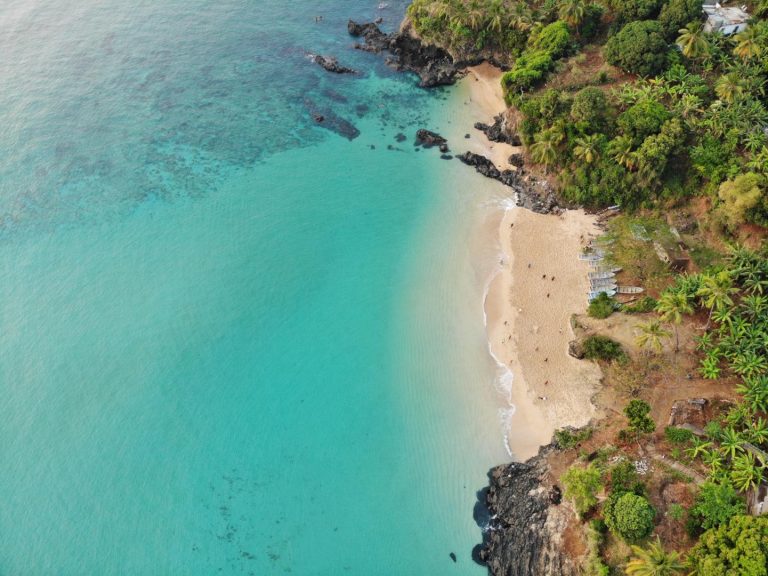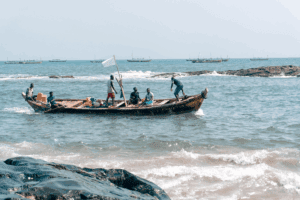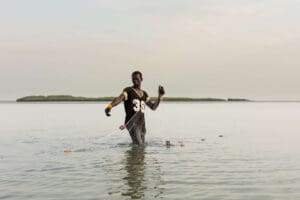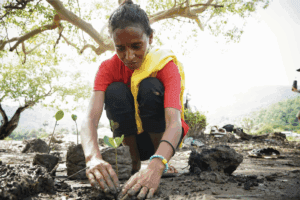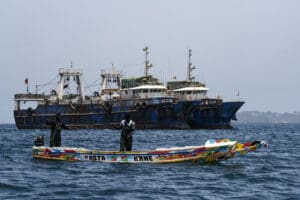70 000 people live in the coastal villages of southwest Madagascar. Most of them are Vezo; a traditionally semi-nomadic people whose cultural identity is based around a seafaring existence. Since the Vezo’s arrival in Madagascar some 2000 years ago, this unique tribe has migrated in search of better fishing grounds, moving with the seasons and the movements of favoured fish species.
For generations migration has served as a safety-valve to over-population and diminishing resources in a particular fishing area – when resources aren’t adequate enough to sustain a village’s growing population, people move to previously unexploited areas that were either uninhabited or sparsely populated.
Historically this is thought to have allowed a natural equilibrium to be established between the number of people fishing and the health of the local marine ecosystem. But the combined pressures of climate change, rapid population growth, occupation of the coast by urban and tourism developments, industrial fishing and foreign markets driving new export fisheries, have drastically changed the context in which migration now takes place.
Today thousands of fishers are migrating ever-increasing distances from their home villages, often travelling up to 1000 kilometres, as far as Mahajunga in the north and Fort Dauphin in the south. Migrants travel exclusively by sea in open pirogues; traditional dug-out sailing canoes.
Little is known about this contemporary migration; how many fishers migrate, why they are migrating, or how important migration is to Vezo livelihoods and culture. Throughout the months of April and May, Blue Ventures’ conservation scientists Bravo Rahajaharison and Dr. Garth Cripps have travelled with local families on the northward migration, in an 8-week journey by pirogue, much of it across open ocean, from the remote village of Andavadoaka to the offshore Barren Islands.
Their study is working to understand the drivers and underlying causes of the Vezo migration. Over-population, sedimentation, over-fishing and climate change have greatly diminished the health of marine ecosystems in the villages of origin. Exhausted fisheries mean that the Vezo are no longer able to subsist from local fishing. Results of the study are revealing many of the stark realities that fishers in southwest Madagascar face; issues that are intimately linked to the management challenges of marine conservation.
Blue Ventures is working with Madagascar’s National Parks Service to develop conservation plans to protect traditional Vezo livelihoods and marine biodiversity in some of the offshore islands visited by the migrant fishers, in particular the chain of barrier islands lying off the coast of Belo-sur-Mer, adjacent to the Kirindy Mite National Park.
This initiative forms part of a regional research programme supported by Blue Ventures (blueventures.org), the Western Indian Ocean Marine Science Asssociation (WIOMSA) (www.wiomsa.org) and the European Union (Progeco) (www.progeco-oi.org)

